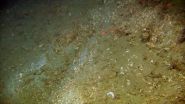(Press-News.org) WASHINGTON, Sept. 14, 2010 — A new genre of construction materials, made with particles barely 1/50,000th the width of a human hair, is about to play a big role in the building of homes, offices, bridges, and other structures, according to the latest episode in the American Chemical Society's (ACS) award-winning podcast series, "Global Challenges/Chemistry Solutions."
A new Global Challenges podcast and website is highlighting both the potential benefits of these nanomaterials in improving construction materials and the need for guidelines to regulate their use and disposal. It is based on a report in the monthly journal ACS Nano.
Pedro Alvarez, Ph.D., and colleagues at Rice University in Houston, Texas, note that nanomaterials likely will have a greater impact on the construction industry than any other sector of the economy, except biomedical and electronics applications. Certain nanomaterials can improve the strength of concrete, serve as self-cleaning and self-sanitizing coatings, and provide many other construction benefits, they say. Concerns exist, however, about the potential adverse health and environmental effects of construction nanomaterials, the study adds.
INFORMATION:
This podcast is available without charge at iTunes and from ACS at www.acs.org/globalchallenges. ACS encourages educators, schools, museums, science centers, news organizations, and others to embed links to Global Challenges on their websites. Recent podcasts in the series, also available on the same site, include "smart" roofs that are energy-efficient; the origins of household dust; a urine test for pneumonia, and a more economical process for making ethanol from non-food sources.
Global Challenges/Chemistry Solutions is a series of podcasts describing some of the 21st Century's most daunting problems, and how cutting-edge research in chemistry matters in the quest for solutions. Global Challenges is the centerpiece in an alliance on sustainability between ACS and the Royal Society of Chemistry. It includes topics such as providing a hungry, thirsty world with ample supplies of nutritious food and clean water; developing alternatives to petroleum to fuel society; preserving the environment and assuring a sustainable future for our children; and improving human health.
The American Chemical Society is a nonprofit organization chartered by the U.S. Congress. With more than 161,000 members, ACS is the world's largest scientific society and a global leader in providing access to chemistry-related research through its multiple databases, peer-reviewed journals and scientific conferences. Its main offices are in Washington, D.C., and Columbus, Ohio.
New American Chemical Society podcast: Big building blocks from nanoparticles
2010-09-14
ELSE PRESS RELEASES FROM THIS DATE:
First US trial of bone-marrow stem cells for heart attack patients proves safe
2010-09-14
The first randomized, placebo-controlled U.S. clinical trial to assess the use of bone marrow-derived mononuclear cells (BMC) in patients after a ST-elevation myocardial infarction (STEMI; severe heart attack) demonstrated a strong safety profile for this cell therapy, based on phase 1 results published in the September issue of the American Heart Journal.
"The use of adult stem cells, derived from the patient's own bone marrow, presents a potential new type of therapy to benefit individuals after they suffer a heart attack," says the study's principal investigator Jay ...
Women more likely than men to accept global warming
2010-09-14
EAST LANSING, Mich. — Women tend to believe the scientific consensus on global warming more than men, according to a study by a Michigan State University researcher.
The findings, published in the September issue of the journal Population and Environment, challenge common perceptions that men are more scientifically literate, said sociologist Aaron M. McCright.
"Men still claim they have a better understanding of global warming than women, even though women's beliefs align much more closely with the scientific consensus," said McCright, an associate professor with ...
Watercress may 'turn off' breast cancer signal
2010-09-14
The research, unveiled at a press conference today (14 September 2010), shows that the watercress compound is able to interfere with the function of a protein which plays a critical role in cancer development.
As tumours develop they rapidly outgrow their existing blood supply so they send out signals which make surrounding normal tissues grow new blood vessels into the tumour which feed them oxygen and nutrients.
The research, led by Professor Graham Packham of the University of Southampton, shows that the plant compound (called phenylethyl isothiocyanate) found ...
Researchers nationwide ask for new focus on 'sudden death' heart disorder
2010-09-14
(PHILADELPHIA) An abrupt, fatal heart attack in a young athlete on the playing field is a tragedy destined to repeat itself over and over until more is understood about hypertrophic cardiomyopathy (HCM), a genetic disorder that is the most common cause of sudden death in young people but which affects people of all ages. So says a task force of cardiologists and cardiac biologists, headed by Thomas L. Force, M.D., James C. Wilson Professor of Medicine at Thomas Jefferson University, in the September 14th online edition of the journal Circulation.
Their special report ...
Human impacts on the deep seafloor
2010-09-14
Scientists have for the first time estimated the physical footprint of human activities on the deep seafloor of the North East Atlantic. The findings published in the journal PLoS ONE reveal that the area disturbed by bottom trawling commercial fishing fleets exceeds the combined physical footprint of other major human activities considered.
The deep seafloor covers approximately 60% of Earth's surface, but only a tiny fraction of it has been studied to date. Yet as technology advances and resources from relatively shallow marine environments are depleted, human impacts ...
Global fisheries research finds promise and peril
2010-09-14
Global fisheries, a vital source of food and revenue throughout the world, contribute between US$225-$240 billion per year to the worldwide economy, according to four new studies released today. Researchers also concluded that healthier fisheries could have prevented malnourishment in nearly 20 million people in poorer countries.
This first comprehensive, peer-reviewed estimate of the global economic contribution of fisheries was published online today in four papers as part of a special issue of the Journal of Bioeconomics.
This research, conducted by the University ...
GOES-13 sees system 92L looking more like a tropical depression
2010-09-14
GOES-13 captured a look at System 92L this morning as it continues moving through the central Caribbean, and it's looking more and more like a tropical depression.
As the Geostationary Operational Environmental Satellite called GOES-13 satellite keeps relaying data to NOAA (who manages the satellite) and the NASA GOES Project at NASA's Goddard Space Flight Center in Greenbelt, Md., the images created by the NASA GOES Project reveal that System 92L appears to be taking on the appearance of a tropical depression. In the imagery captured today, Sept. 14 at 1340 UTC (9:40 ...
Neuralstem stem cells survive and differentiate into neurons in rats with stroke
2010-09-14
ROCKVILLE, Maryland, September 14, 2010 – Neuralstem, Inc. (NYSE Amex: CUR) announced that its spinal cord stem cells survived in rat brains affected by stroke and differentiated predominantly into neurons. The transplanted animals showed significant improvement in some motor skill and strength measurements. The study entitled, "Intracerebral Implantation of Adherent Human Neural Stem Cells To Reverse Motor Deficits in Chronic Stroke Rats," was presented earlier today by senior study author, Dr. Shinn-Zong Lin, M.D., Ph.D., at the Stem Cells USA & Regenerative Medicine ...
Enigmatic star devours companion; possibly pregnant with second-generation planets
2010-09-14
An astronomer may have caught a cannibalistic star in the act of devouring a companion and making a second generation of exoplanets from the resulting orbiting disk.
Using data from NASA's Chandra X-ray Observatory, Joel Kastner, professor at Rochester Institute of Technology, has found evidence that a variable star in the constellation of Pisces, BP Piscium, is not the young star it appears to be, but is more likely a one billion-year-old red giant that has gobbled up a star or planet in its vicinity.
The star's extreme properties have puzzled astronomers since Kastner ...
International Fertility Societies call for harmonization of cross-border reproductive care standards
2010-09-14
"The IFFS's 'Surveillance 2010' report, compiled by Professor Ian Cooke and published on 14 September 2010, illustrates this for over 100 countries. The survey highlights how widely assisted reproductive technologies (ART) are being used and how different cultures are regulating services in different ways. In most countries there is no state or insurance support, so these services are costly and frequently beyond the reach of many families. In some countries access to donor gametes is denied or supply is limited.
To address the safety of patients that seek treatment abroad, ...




